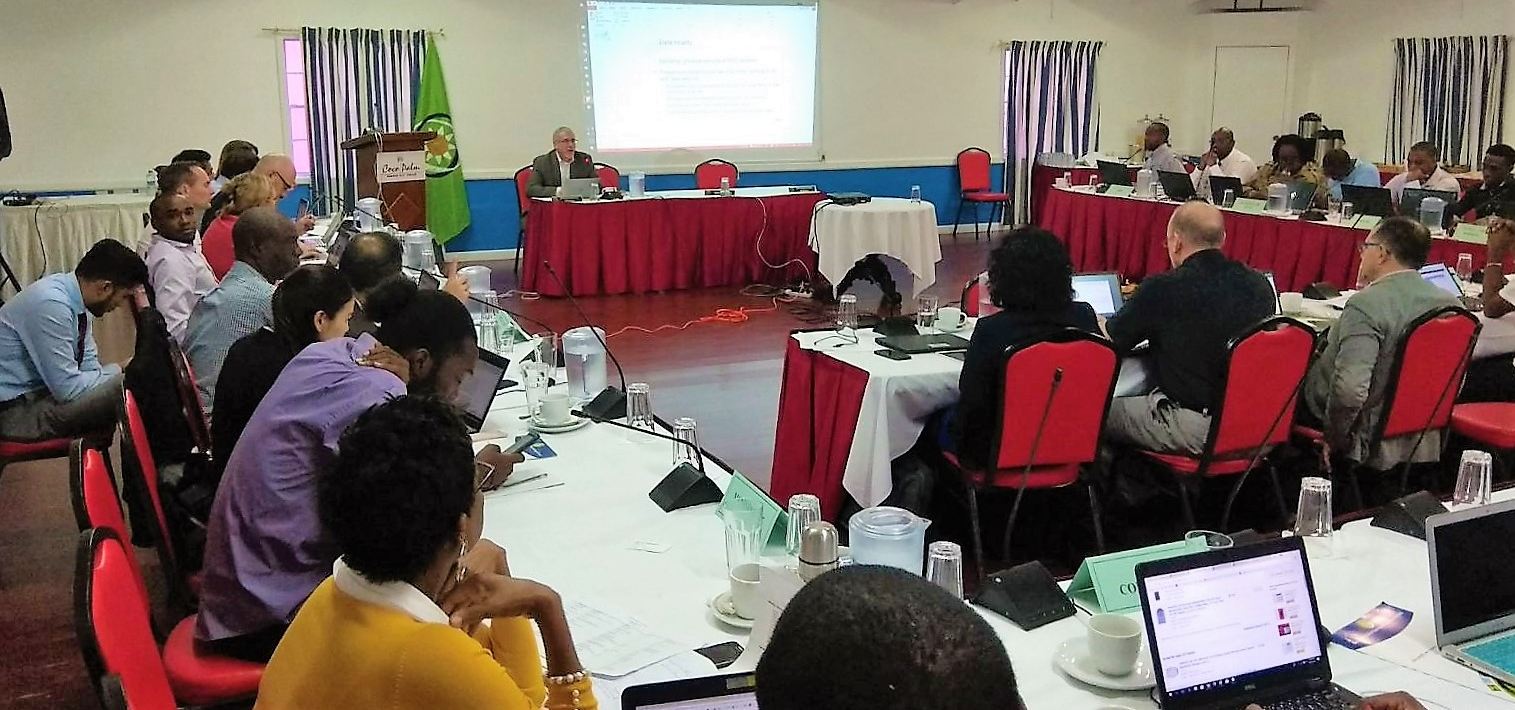OECS Prepares for 'Cloud for Development (C4D)' Pilot
OECS Media Release
The OECS is moving towards the implementation of disaster-proof innovation and infrastructure with the pilot of the World Bank’s Cloud for Development (C4D) project in Member States.
C4D is a joint OECS Commission, World Bank and Amazon Web Services (AWS) initiative that aims to enable national statistical offices (NSOs) and the rest of the public sector in developing countries to securely store, access, analyse and share survey and administrative data.
The OECS Commission in collaboration with the World Bank recently convened a C4D conference at the Cocoa Palm Hotel in Gros Islet, Saint Lucia, from 13 to 15 November 2017, to confirm the feasibility for piloting the C4D project within the OECS Member States.
Specific objectives were:
- to present a set of tools that are available on the cloud;
- to share the experiences of countries that have already been using cloud storage to store and, analyse their data; and
- to discuss legal issues related to hosting sensitive data on the cloud.
The World Bank, leading this initiative, will partner with major global cloud providers such as AWS, Microsoft and Google to develop and test the technological and legal frameworks to introduce cloud computing to the Member States.
Michael Lokshin, Lead Economist and Manager in the Development Data Group of the World Bank, acknowledged the technical challenges and risks associated with cloud computing technology and proposed “public-private partnership for resilient digital infrastructure." He said "NSOs’ reliance on local IT infrastructure makes the hardware and software highly vulnerable to natural disasters."
The cloud for development initiative is consistent with the OECS Regional Strategy for the Development of Statistics (RSDS). The RSDS has five strategic priorities, one of which is to “join the data revolution” – this calls for exploring and exploiting the information technology more aggressively and innovatively than ever before. Modern ways of collecting/capturing/gathering, integrating, accessing and storing data are fundamental to this priority.
Dr. Gale Archibald, Head of the Statistical Services Unit at the OECS Commission said “the cost-benefit analysis of cloud computing justifies the move from server-client model to using virtual space for data storage."
Mr. Pierre Bowrin, ICT Policy Advisor for the Government of St. Kitts and Nevis, welcomed the C4D workshop as an opportunity to engage industry leaders such as Amazon Web Services on Cloud Computing.
"Such emerging technologies can potentially accelerate sub-regional and regional efforts towards the development of a single ICT space."
"The technology would allow the region to establish a regional Government Enterprise Architecture that is aligned with the ISO 27001 - Information Security Management and ISO 27032 digital Cyber-security international standards," he added.
One of the main attributes of the C4D initiative is to provide support to achieve two targets under Sustainable Development Goal 9: Industry, Innovation and Infrastructure – Build resilient infrastructure, promote sustainable industrialisation and foster innovation. Specifically, countries can expect to pursue target 9b “Support domestic technology development, research and innovation in developing countries…” and target 9c “Significantly increase access to information and communications technology and strive to provide universal and affordable access to the internet in least developed countries by 2020."
The workshop was attended by representatives from the NSOs, from ministries and organisations responsible for Information and Communication Technology, public sector transformation, geospatial information systems specialists, and legal officers across the region. Staff members from the Statistical Services Unit, ICT Unit and Legal Unit of the OECS Commission were also in attendance.
The conference was funded by the World Bank, with support from the Caribbean Development Bank for OECS Member States that are not members of the World Bank.






